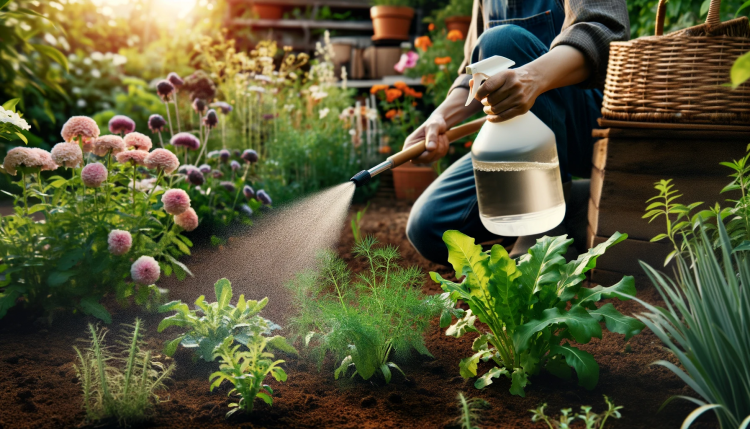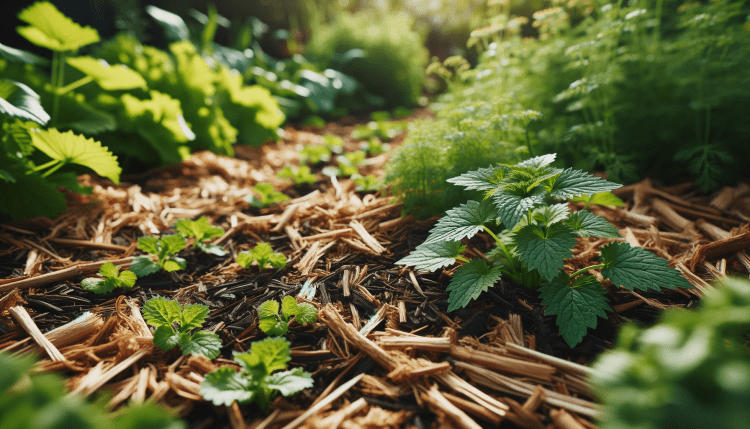
Weeds are a common challenge in gardens and landscapes, but managing them doesn’t have to rely on harsh chemicals. Organic weed control focuses on natural and sustainable methods to keep unwanted plants at bay. This guide explores a variety of organic strategies to help you maintain a healthy, weed-free garden.
Understanding Weeds

The Role of Weeds in the Garden
Weeds can be more than just a nuisance; they often indicate underlying issues with soil health, compaction, or moisture. Understanding why weeds are present can help in choosing the most effective control method.
Preventative Measures
Cultivating Healthy Soil
- Soil Testing and Amendment: Healthy, well-balanced soil discourages weed growth. Regular soil testing and amendments based on its needs can create an unfavorable environment for weeds.
Choosing the Right Plants
- Competitive Planting: Planting densely with competitive plants can naturally suppress weed growth by limiting the resources available to weeds.
Mulching
- Organic Mulches: Wood chips, straw, grass clippings, and leaf litter can effectively block light to weeds and enrich the soil as they decompose.
- Inorganic Mulches: Landscape fabrics can be used to suppress weed growth, although they don’t improve soil health.
Physical and Cultural Methods
Hand Weeding and Hoeing
- Regular Removal: Removing weeds by hand or with a hoe is most effective when done regularly and before weeds set seed.
- Proper Technique: Pulling weeds when the soil is moist makes the task easier and ensures the entire root is removed.
Proper Watering Techniques
- Drip Irrigation and Soaker Hoses: These watering methods target plants directly and limit water availability to weeds.
Additional Physical Control Methods
Solarization
- Soil Solarization: A method where clear plastic is used to cover the soil during hot weather, trapping heat and effectively killing weed seeds and roots.
Smothering
- Cover Crops: Planting cover crops like clover or rye can smother weeds by monopolizing resources.
- Sheet Mulching: Layers of cardboard or newspaper topped with organic mulch can effectively smother existing weeds.
Biological Control
Natural Weed Predators
- Beneficial Insects and Animals: Certain insects and animals, such as beetles or chickens, can help control weed populations by feeding on them.
Introducing Microbial Controls
- Soil Bacteria and Fungi: Some soil microbes can inhibit weed growth. Cultivating a healthy soil microbiome can be an effective long-term strategy.
Natural Herbicides
Vinegar-Based Herbicides
- Acetic Acid: Household vinegar can be used as a natural herbicide. Higher concentrations of acetic acid are more effective but should be used with caution.
Corn Gluten Meal
- Pre-emergent Control: Corn gluten meal can inhibit the germination of weed seeds. It is most effective when applied in early spring.
Integrated Weed Management

Combining Methods for Effective Control
- Strategic Approach: Employing a combination of methods can provide more effective weed control than relying on a single strategy.
Regular Monitoring and Adaptation
- Observation and Adjustment: Regularly monitor the garden for weed pressure and adapt your strategies accordingly.
Patience and Persistence
Organic weed control requires patience, persistence, and a willingness to experiment with different methods. By understanding the specific conditions of your garden and employing a variety of organic strategies, you can effectively manage weeds without resorting to chemical solutions. Embracing these methods contributes to a healthier ecosystem and a more sustainable gardening practice.




